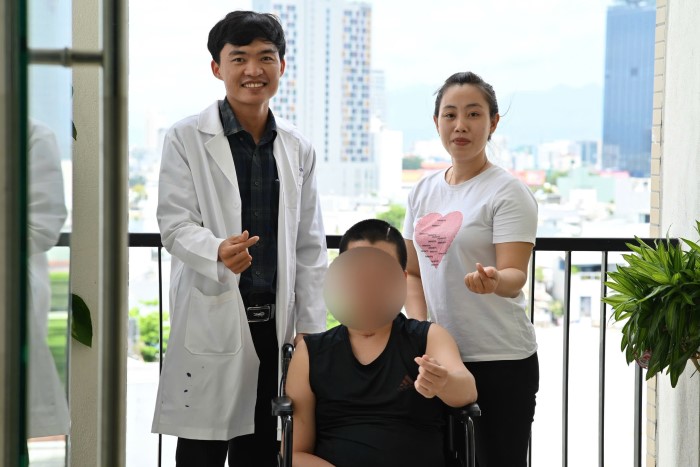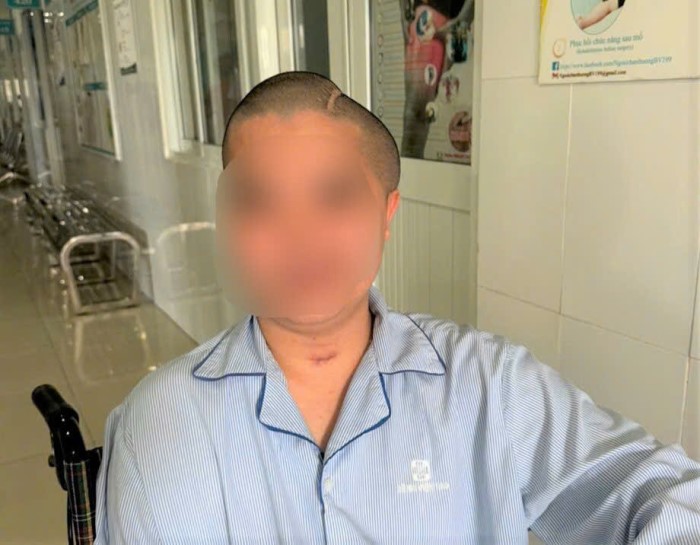
Patient N.P.Q, 31 years old, had a history of having had surgery on a traumatic brain injury, then re- place the autologous skull cap. After that, the patient continued to suffer a second traumatic brain injury in the same location, the previous skull cap had to be removed. After researching the services at Hospital 199, the family took the patient to the Neurosurgery: Scalp - Spine unit for a qualitative calculation of a traumatic brain defect.
Before performing the plastic surgery, the patient was carefully monitored by doctors and nurses, taking a brain CT scan to get an accurate 3D image of the fossa defect area, then this information will be used during the stage of shaping and producing an artificial skull piece with a size and shape suitable for the patient's defect.

Patient N.P.Q's family said: "After surgery, my family's health recovered well, the surgical wound was very beautiful. The patient is practicing rehabilitation and treatment as prescribed by the doctor. My family is very happy.
According to Master - Doctor Luu Binh Duong, Neurosurgery Unit: concussion - Spine (Hospital 199), in this case, we used 3D printing technology to create a brain grid shape using titanium material. This new technology helps doctors be proactive, visualize the shape and structure of the surgical area in advance".
"If the condition of fosteroioioioioi is not completely resolved, it can lead to disadvantages for the brain as well as reduce the aesthetics of the patient. Therefore, patients should see a specialist for timely advice and support, ensuring health safety, as well as aesthetics for themselves" - Master - Doctor Luu Binh Duong added.
Previously, doctors at Hospital 199 also showed off fossile fossae in 3 other cases. The successful implementation of cases related to the field of extra-neurology - cranial diseases will help patients in Da Nang as well as neighboring provinces have more locations to choose to perform services when needed.


